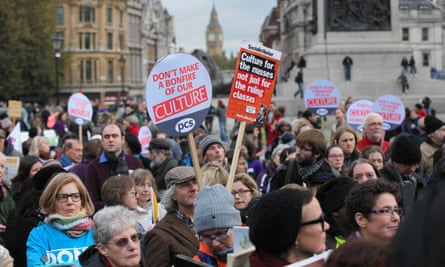After eight years, Greece will on Monday be deemed strong enough to stand on its own feet. The international bailout programme that has provided Athens with emergency financial support will come to an end. Aside from the tough budget rules in place for the next decade or more, Greeks can wave goodbye to the troika – the officials from the International Monetary Fund, the European Central Bank and the European Union – that has in effect been running the country since 2010.
Beware the hype that trumpets this as a great success story, a tribute to solidarity and a commonsense approach that has restored economic stability and prevented Greece from being the first country to leave the euro. Nothing could be further from the truth.
Greece has been a colossal failure. It is a tale of incompetence, of dogma, of needless delay and of the interests of banks being put before the needs of people. And there will be long-term consequences. When Greece first received help in 2010, the plan was for it to have access to the financial markets within two years. It has taken two further rescue packages and six years for that to happen.
The Greek economy has recently been growing, but it has a vast amount of ground to make up, following a peak-to-trough contraction that saw gross domestic product shrink by almost a third. The loss of so much output could have been avoided, but Greece – like the rest of Europe – was subjected to the idea that the priority in the wake of the most serious financial crisis in a century was for governments to balance the books through deflation.
Greece’s problems were triggered when Athens said its budget deficit had ballooned to 13% of GDP in 2009 – much worse than previously estimated. The markets took fright and Athens was forced to seek international help. The original rescue plan involved €110bn (£98.8bn) of financial assistance in return for shrinking its deficit by 7.5 percentage points in 2010 alone.
This was never remotely feasible, but was based on the theory that a commitment to shrink budget deficits and to bring public debt levels down would boost the confidence of the financial markets. Investors would demand a lower premium for holding sovereign debt, and that would result in lower long-term interest rates. Lower long-term interest rates would mean higher growth. In Europe in the years after the financial crisis, the idea that you could cut your way back to prosperity was all the rage. It was called expansionary fiscal contraction (EFC). And it was a complete dud.
Adherents of EFC believed in crowding out: the theory that any boost a government got from spending more on, say, repairing bridges, to boost growth and create jobs would be negated by the higher interest rates needed to finance the deficits that would result. Public spending would crowd out private investment.
But the crowding out theory was inappropriate for the financial crisis and its aftermath, because the banks were dysfunctional, credit flows had dried up and the demand for private sector investment was not there. In those circumstances, when the government was the only game in town, cutting public investment had the opposite effect to the one intended. If consumers and businesses were already retrenching, EFC sucked demand out of the economy. Cutting public sector wages and reducing the value of benefits resulted in lower consumer spending and further depressed private investment.
In Greece, this approach led to a spiral of decline as jobs were shed and tax revenues slumped. Public debt went up rather than down, leading to pressure for still more cuts.

But milder versions of the same dynamic played out elsewhere. There was Ireland, where the insistence that taxpayers rather than bondholders should pay for the irresponsible lending of the banks resulted in disability benefits being cut. There was Italy, where there was no real attempt by Rome between 2010 and 2012 to mitigate the impact of the financial crisis through discretionary fiscal policy.
And there was, of course, Britain, where the coalition government did not even have the excuse of being confined by the straitjacket of the single currency to excuse its foolish decision to choke off the economic recovery of 2009-10 with over-hasty spending cuts and tax increases. George Osborne was a true believer in EFC.
It is no real defence for those who so avidly embraced austerity to point to the return of growth as evidence that they were right all along. All economies recover eventually: the question is whether a less damaging approach could have been adopted. To which the answer is yes. The recovery from the deep downturn of 2008-09 would have been faster and more sustainable had different policies been followed.
As it is, extensive and permanent damage has been done. First, there is the social cost of a decade of failed austerity: the closed libraries; the mothballed care centres, the increased number of food banks.
Second, there is the opportunity cost: all the infrastructure that could have been built or repaired had governments taken advantage of historically low interest rates and borrowed to invest. Cutting corners to save money has consequences.
Third, the global economy is far from healed. In fact, it has been the weakest recovery from any recession since the second world war. The US has done best of the developed economies because it was influenced by, but never wedded to, EFC.
Last, but certainly not least, the old social contract between leaders and people has been stretched almost to breaking point. Voters once believed that if they worked hard, they would earn a decent wage and the state would look after them if times were hard. If that belief no longer holds, what happened in Greece these past eight years has much to do with it.









